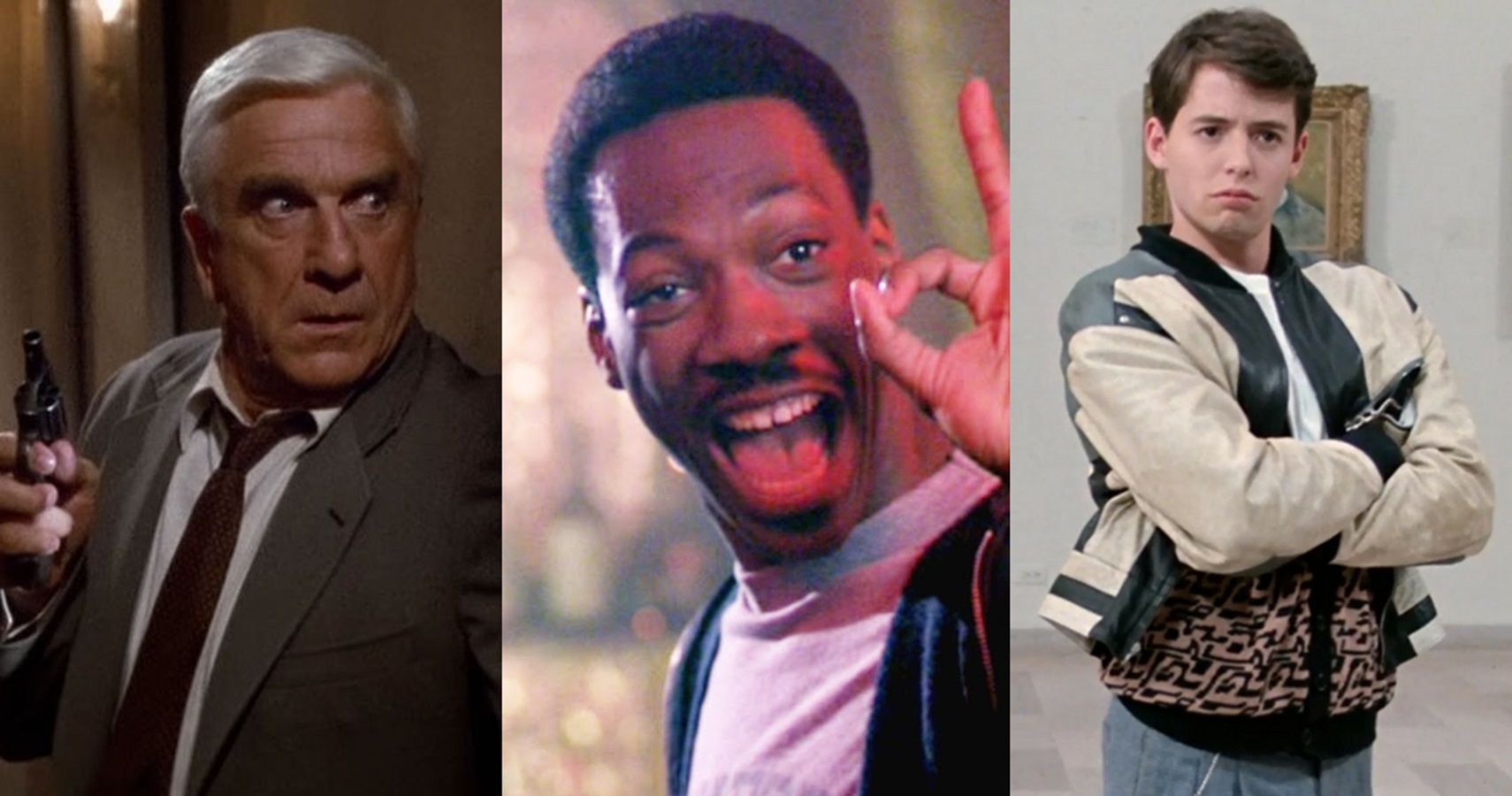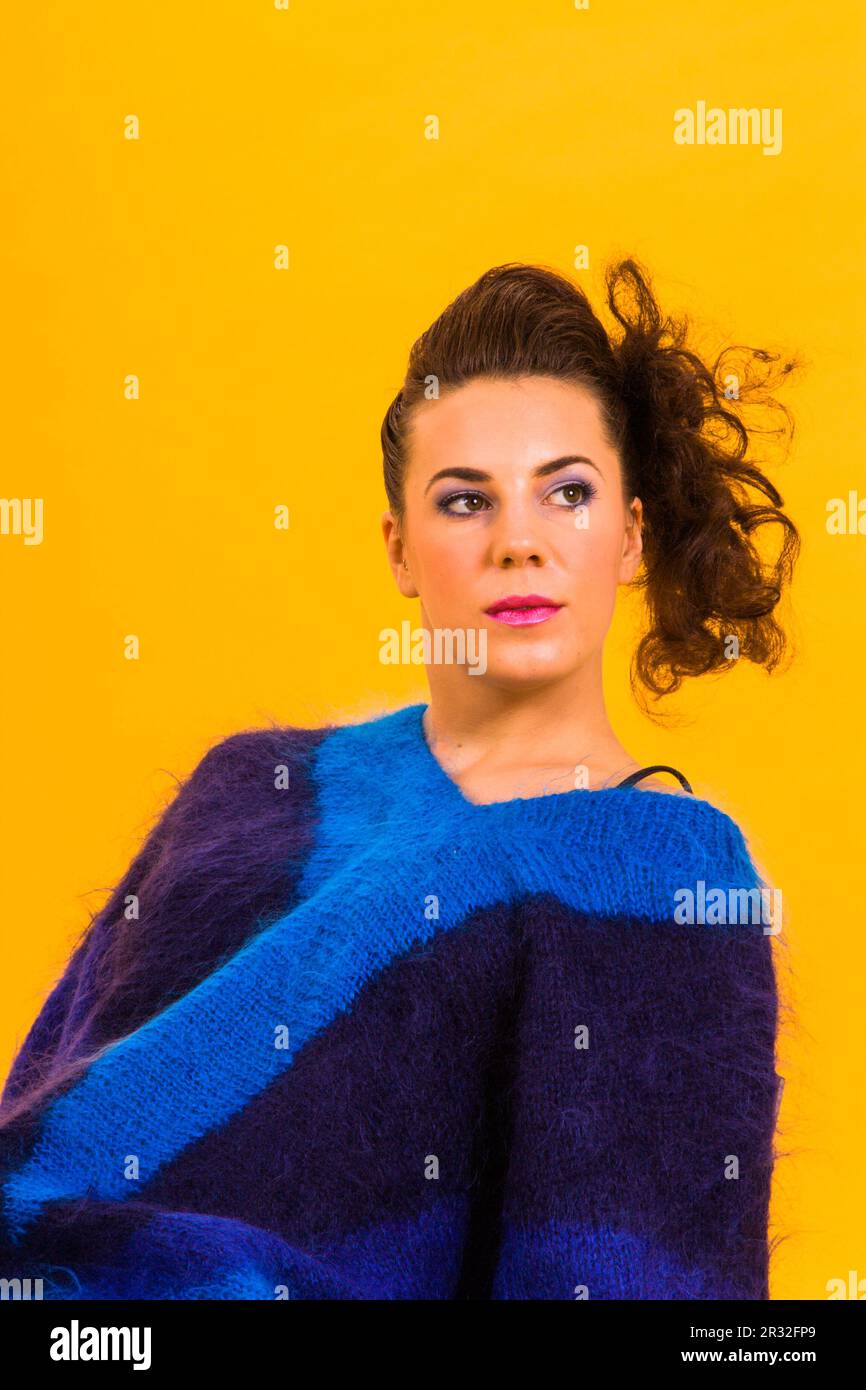The 1980s was a golden decade for comedians, where humor took center stage and left an indelible mark on the entertainment industry. From stand-up comedy clubs to late-night talk shows, the eighties witnessed the rise of legendary comedians who redefined comedy as an art form. Their unique styles, sharp wit, and ability to connect with audiences set them apart and created a legacy that continues to inspire today's comedians.
Comedians of the eighties were not just entertainers; they were cultural icons who tackled societal issues, political satire, and personal experiences through humor. This era marked the beginning of comedy as a mainstream entertainment medium, with countless comedians achieving fame and fortune. The impact of these comedians is still felt today, as their influence resonates through modern comedy.
This article delves into the world of eighties comedians, exploring their careers, contributions, and lasting legacy. Whether you're a fan of classic comedy or a newcomer eager to discover the roots of modern humor, this article will take you on a journey through the golden era of laughter.
Read also:Where Does Errol Musk Live
Table of Contents
- Biography of Iconic Comedians
- The Rise of Stand-Up Comedy in the 1980s
- Key Figures in Eighties Comedy
- Impact on Pop Culture
- Comedy TV Shows of the Eighties
- Comedic Movies of the Decade
- The Role of Comedy Clubs
- Legacy of Eighties Comedians
- Contemporary Influence
- Conclusion
Biography of Iconic Comedians
Who Were the Comedians of the Eighties?
The 1980s was home to some of the most iconic comedians in history. These individuals not only entertained but also challenged societal norms and paved the way for future generations. Below is a table summarizing key details about some of the most influential comedians of the era:
| Name | Birth Year | Known For | Major Achievements |
|---|---|---|---|
| Robin Williams | 1951 | Mork & Mindy, stand-up comedy | Emmy Award, Academy Award |
| Eddie Murphy | 1961 | Saturday Night Live, Beverly Hills Cop | Golden Globe Award, Grammy Award |
| Richard Pryor | 1940 | Stand-up comedy, Live on the Sunset Strip | Emmy Award, Grammy Award |
| Whoopi Goldberg | 1955 | Sister Act, The View | EGOT Winner (Emmy, Grammy, Oscar, Tony) |
The Rise of Stand-Up Comedy in the 1980s
Stand-up comedy experienced a renaissance in the 1980s, thanks to the emergence of new talent and the growing popularity of comedy clubs. Comedians of the eighties used stand-up as a platform to express themselves, often incorporating personal stories, political commentary, and social satire into their routines.
Why Did Stand-Up Become So Popular?
- Increased accessibility of comedy clubs
- Television shows like "Saturday Night Live" showcasing stand-up acts
- Comedians addressing taboo topics with humor
According to a study published by the Journal of American Culture, the number of comedy clubs in the United States grew exponentially during the 1980s, providing more opportunities for comedians to perform and refine their craft.
Key Figures in Eighties Comedy
Several comedians emerged as key figures in the eighties, leaving an indelible mark on the comedy landscape. Their contributions went beyond entertainment, influencing societal perceptions and inspiring future comedians.
Robin Williams: The Man of a Thousand Voices
Robin Williams was a comedic genius known for his rapid-fire improvisation and voice impersonations. His work on "Mork & Mindy" and his stand-up performances brought laughter to millions. Williams' ability to seamlessly transition between characters and voices made him a household name.
Eddie Murphy: The King of Satire
Eddie Murphy's rise to fame began with "Saturday Night Live," where he introduced iconic characters like Gumby and Mr. Robinson. His breakout role in "Beverly Hills Cop" solidified his status as a leading comedic actor. Murphy's sharp wit and ability to tackle sensitive topics with humor made him a standout figure of the era.
Read also:Removing Turmeric Stains From Clothes
Impact on Pop Culture
The comedians of the eighties played a significant role in shaping pop culture. Their influence extended beyond comedy, impacting music, fashion, and even politics. Comedians like Richard Pryor and Whoopi Goldberg used their platforms to address important social issues, making comedy a tool for change.
How Did Comedians Influence Society?
- Addressing racial inequality through humor
- Challenging gender stereotypes
- Highlighting political issues in a relatable way
A report by the Pew Research Center highlights how comedians of the eighties contributed to increased public awareness of social issues, using humor as a means to engage audiences.
Comedy TV Shows of the Eighties
Television played a crucial role in popularizing comedy during the 1980s. Shows like "Saturday Night Live," "The Cosby Show," and "Cheers" became staples in American households, showcasing the talents of some of the era's greatest comedians.
Why Were These Shows So Successful?
- Relatable characters and storylines
- Innovative writing and production
- Star-studded casts featuring top comedians
According to Nielsen ratings, "Saturday Night Live" consistently ranked among the top-rated shows of the decade, attracting millions of viewers each week.
Comedic Movies of the Decade
The 1980s saw the release of several iconic comedic films, many of which featured the era's most beloved comedians. Movies like "Beverly Hills Cop," "Ghostbusters," and "Planes, Trains and Automobiles" became box office hits, cementing their place in cinematic history.
What Made These Movies Memorable?
- Strong comedic performances
- Engaging plots and memorable quotes
- Collaborations between legendary comedians
Data from the Box Office Mojo shows that comedic films of the eighties grossed billions of dollars worldwide, proving their widespread appeal.
The Role of Comedy Clubs
Comedy clubs were the breeding grounds for many eighties comedians, providing them with opportunities to hone their skills and gain exposure. Clubs like The Comedy Store in Los Angeles and Catch a Rising Star in New York City became legendary venues for aspiring comedians.
Why Were Comedy Clubs So Important?
- Provided a platform for new talent
- Encouraged experimentation and creativity
- Connected comedians with industry professionals
According to interviews with comedians of the era, comedy clubs were essential for their development, offering a supportive environment to test new material and build confidence.
Legacy of Eighties Comedians
The legacy of eighties comedians continues to influence the comedy world today. Their groundbreaking work set the stage for future generations, inspiring countless comedians to follow in their footsteps.
How Do Eighties Comedians Influence Modern Comedy?
- Through their innovative approaches to comedy
- By addressing important social issues
- By mentoring and supporting emerging talent
A study by the Comedy Central highlights the lasting impact of eighties comedians on modern comedy, with many contemporary comedians citing them as major influences.
Contemporary Influence
Comedians of the eighties have left an indelible mark on the comedy landscape, with their influence evident in today's comedic styles and themes. Modern comedians continue to draw inspiration from their work, ensuring that their legacy endures.
Who Are Some Modern Comedians Inspired by Eighties Legends?
- Trevor Noah
- Kumail Nanjiani
- Amy Schumer
These comedians often reference eighties legends in their routines, paying homage to the pioneers who paved the way for their success.
Conclusion
The comedians of the eighties redefined comedy as an art form, leaving a lasting legacy that continues to inspire and entertain. Through their groundbreaking work, they addressed important social issues, challenged societal norms, and brought laughter to millions of people worldwide.
We invite you to share your thoughts on this article in the comments section below. Who is your favorite comedian from the eighties? How do you think their work has influenced modern comedy? Don't forget to explore other articles on our site for more insights into the world of comedy and entertainment.


